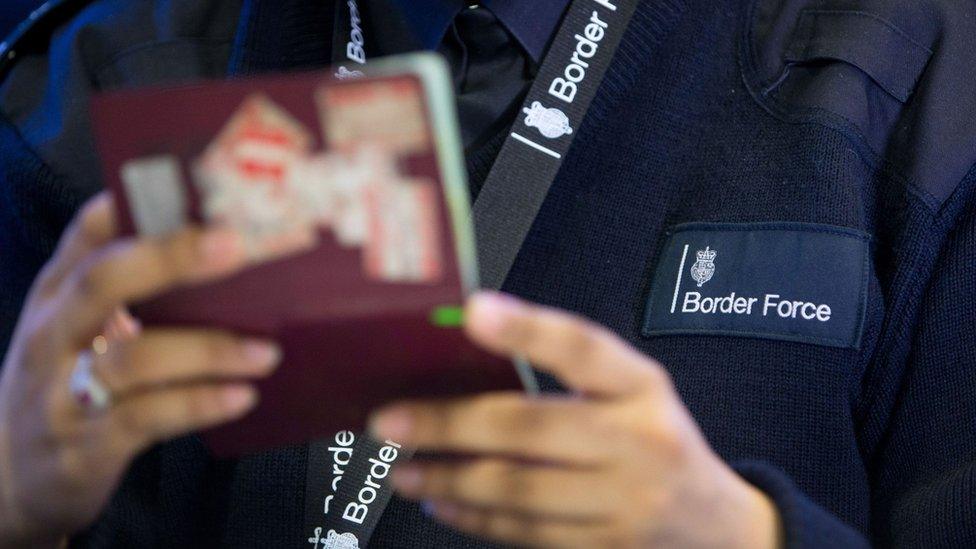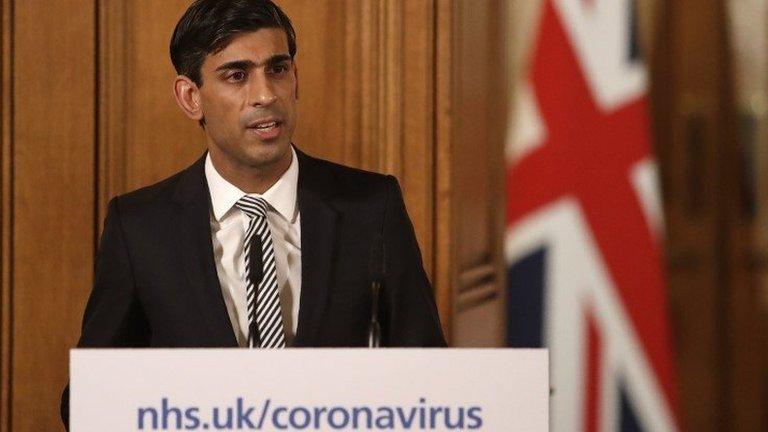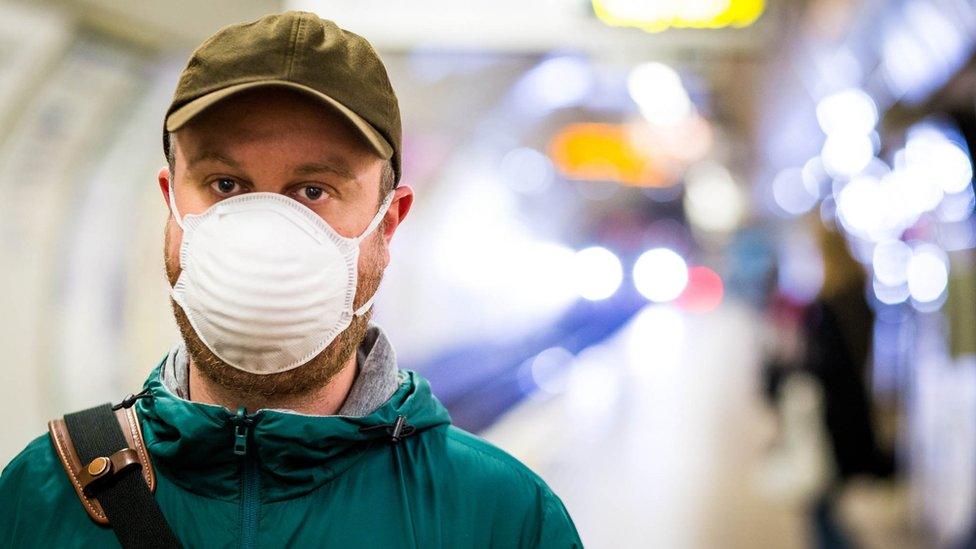Coronavirus: Sweeping emergency powers announced
- Published
- comments

Health Secretary Matt Hancock said the proposals were "proportionate to the threat we face"
Airports could be shut and people held on public health grounds under emergency powers to tackle coronavirus.
Police and immigration officials would be able, external to place people in "appropriate isolation facilities" under plans.
Patients could be discharged early to make space for the seriously ill while social care could be prioritised for those with the greatest needs.
Ministers said the measures were intended to save lives and support health and social care workers.
The bill would give ministers the power to close schools or keep them open and enable councils to make the "best use" of the social care workforce in determining care levels.
Powers in the bill
Health Secretary Matt Hancock said the powers in the bill were "proportionate to the threat we face" but stressed they would only be used "when strictly necessary" and remain in force only for as long as required to respond to the crisis.
The measures are expected to be fast-tracked through Parliament next week - with MPs set to "nod them" through rather than proceeding through the voting lobbies as normal.
Mr Hancock said the primary goal was to slow down the spread of the deadly virus - which has so far led to 71 deaths - and to help prepare the health service for the unprecedented pressures it will face in the coming weeks.
Key measures intended to increase capacity in the NHS include:
Recently retired staff will be able to return to work without any negative impact on their entitlements
Special insurance cover will be provided for staff caring for staff outside their day-to-day duties
Paperwork will be reduced to help doctors discharge patients more quickly
Extra employment safeguards for volunteers to allow them to pause their main jobs for up to four weeks
Elsewhere, the process of arranging funerals could be speeded up as part of efforts to "manage the deceased in a dignified way" should the UK experience "excess deaths".

A SIMPLE GUIDE: What are the symptoms?
AVOIDING CONTACT: Should I self-isolate?
LOOK-UP TOOL: Check cases in your area
MAPS AND CHARTS: Visual guide to the outbreak

More court hearings could take place by phone or video while the Border Force could temporarily suspend operations at airports and other transport hubs if there are insufficient resources to maintain border security.
Most controversially, the bill would would give unprecedented powers to law enforcement agencies to detain people and put them in appropriate isolation facilities if necessary.
Ministers say they hope this will not be necessary as people will act responsibly, adding that the legislation will "support and protect the public to do the right thing and follow public health advice".
Mr Hancock said the measures would be "timed to maximise their effectiveness" and would be "switched off" once no longer necessary, in line with the UK's four most senior medical advisers.
“By planning for the worst and working for the best we will get through this, but this is a national effort and we must all work together," he said. "Crucially they give the government the powers it needs to protect lives."
The government has unveiled what it said was an "unprecedented" set of financial measures to support the UK economy, including mortgage "holidays" for those in financial difficulty as well as £330bn in loans to protect businesses facing losses as a result of the virus.
The NHS also confirmed that all non-urgent operations will be postponed from 15 April to free up beds for virus patients.
MPs will be able to suggest changes to the bill, the Commons Speaker confirmed on Wednesday.
Speaking at Prime Minister's Questions, Labour leader Jeremy Corbyn said the opposition would hold the government to account to ensure the most "effective action" was taken to protect the public and NHS staff.
- Published17 March 2020

- Published17 March 2020

- Published23 March 2020
